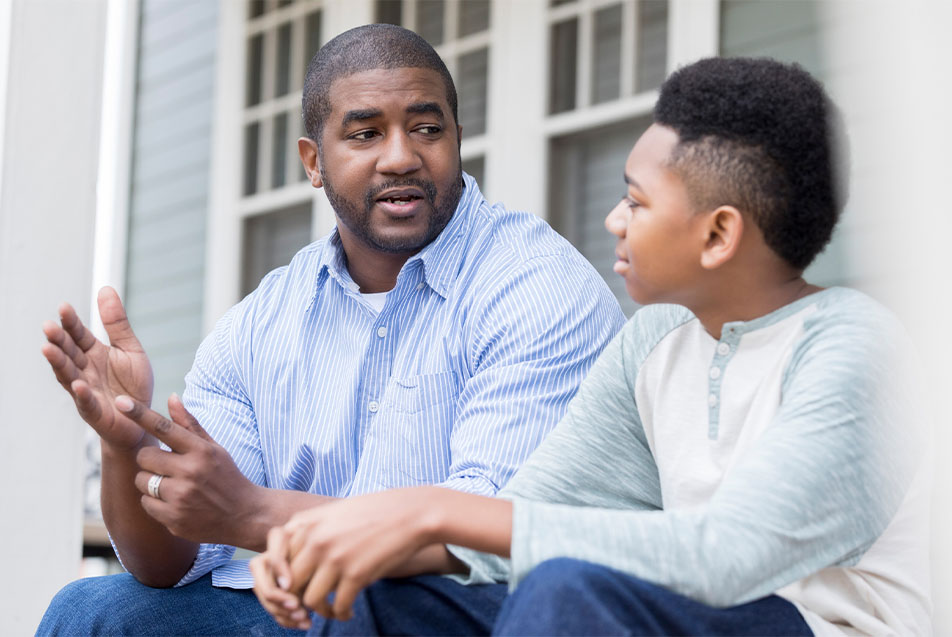
Knowing when to discuss puberty and sexual health with your son can be difficult. Having an honest conversation about the many bodily changes they are about to experience can feel a bit daunting. In an attempt to ease your fears and boost your confidence, we turned to Reshma Khatri, MD, PPG – Pediatrics. Here, she answers our questions while providing simple strategies for establishing an open dialogue with your child.
At what age should I start talking to my son about puberty?
Boys usually begin puberty between the ages of 10-13, but it’s very common for children to start puberty before or after these ages, too. The exact time a child will go through puberty can be challenging to pinpoint and usually depends on a child’s:
- Genes
- Nutrition
- Weight
How can I cover the topic without overwhelming my son?
While it may be challenging to know precisely when to tackle the subject, starting the conversation before puberty may be helpful. Try to begin with very basic information, then build on it. Do this over a period of weeks and months, making it a part of your regular conversations. This approach will help make the discussion less stressful, embarrassing or overwhelming.
However, if you need to have a more focused and concise talk with your son, don’t be afraid to try a more direct approach. He may appreciate the straightforward dialogue. Also, don’t be scared to ask if he has any questions. Responding to specific items rather than providing a general overview of information may benefit you both.
Remember to be open and honest about the many changes they will soon experience. Help them understand what to expect during puberty and remind them that the changes they are going through are completely normal.
What are some signs that he might be approaching puberty?
You may notice your child is entering puberty when the following occur:
- Moodiness
- Exaggerated emotions
- Wanting to spend more time on his own or with his peers
Also, it’s important to realize that signs of puberty don’t happen simultaneously. It’s common for some boys will grow armpit and pubic hair before showing other indications of puberty.
Is this an appropriate time to also discuss sexual health?
During your puberty talk, make it clear that you will support your child if they have questions about their gender, identity or sexual orientation. However, if your child is struggling with puberty and the bodily changes and seems anxious or depressed, please speak with their primary care provider.
Should he also know the changes that girls are going through?
Some children might ask you about puberty and the opposite sex. If this situation arises, be confident, clear and stick to the facts. If you feel uncomfortable discussing the subject matter, ask your spouse, partner or adult sibling to speak to your child. Let them know that you are the people to come to for information, that it is a safe space, and that it’s okay to ask questions.
What else can parents do to support their son?
As parents in 2021, we need to realize that our elementary and middle school children may get exposed to general information about sex and drugs through educational/informative talks at school and their peers, especially those who might have older siblings or internet access. For this reason, we must talk to our kids daily so we know what’s happening and how they’re feeling. Taking these steps will provide appropriate opportunities to discuss puberty and sex, drugs, and other topics that are best suited when coming from you. If you have concerns or need help conveying these facts to your child, please speak with their pediatrician. They are there to help.




